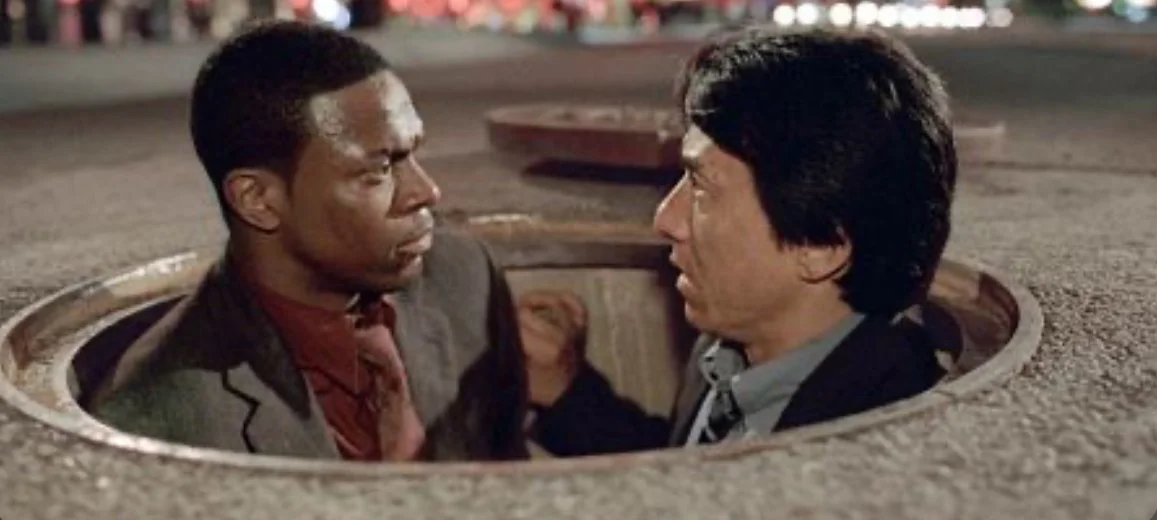It finally happened. “Rush Hour” — yes, the 1998 Jackie Chan–Chris Tucker buddy cop comedy — has been deemed too problematic for modern audiences.
USA Network recently aired the film with a trigger warning slapped on before the opening credits. The message read:
We all love our buddy comedies … but this movie was created in a different time. FYI certain depictions, language and humor may seem outdated and at times offensive
We’ve entered an age where satire, and even just broad comedy from a pre-social media era are being flagged like hazardous material. “Rush Hour,” with its broad humor, culture clashing, and PG-13 jokes, is hardly “Birth of a Nation. And yet, it’s been put in the same moral penalty box as films with genuinely outdated or questionable content.
This isn’t the first time we’ve seen this. In the past few years, we’ve watched the cultural reevaluation brigade go after “Goodfellas,” “Gone With the Wind,” and “Blazing Saddles” — each introduced on cable or streaming with some form of a content advisory message warning of racial or gender-based “insensitivities.”
“Goodfellas” got slapped with a warning for its violence and portrayals of toxic masculinity. “Gone With the Wind” was temporarily pulled by HBO Max (before returning with a warning intro).” Blazing Saddles,” Mel Brooks’ razor-sharp satire that skewered racism by being racist, now comes wrapped in a warning label reminding you that it contains …well, satire.
In theory, these labels are meant to provide “context.” In practice, they’re an awkward attempt to avoid controversy while still showing the film. They come off as a lecture, like you’re being told you’re too dim to interpret a film—or any work of art—on your own. As if audiences need to be talked down to, guided by a moral babysitter. It’s a condescending slap in the face, an outright insult to our intelligence.
We’re not talking about 1930s propaganda reels here. We’re talking about “Rush Hour” — a mainstream, crowd-pleasing studio comedy that grossed $244M worldwide, spawned two sequels, and made Jackie Chan a household name in America. It was on basic cable for two decades without incident.
At least there’s been pushback on “Trigger Warnings,” from some creatives, including Judi Dench, Cate Blanchett, and Quentin Tarantino, who have all rallied against it, with the latter saying ..
I reject the word “offended”. Anyone can be offended by anything. Frankly, I think most of the time – and there are no doubt some exceptions – saying that you are “offended” by a film is the first response of a very narrow mind. “I didn’t like it, and here’s why, blablabla…” But, man, being offended? Art is no offense. And, although, in rare cases, I can understand it, it's just ridiculous to be offended by the content of a film.
There’s a fatigue setting in with these content warnings — a sense that we’re not protecting people from harm so much as treating them like delicate children. Adults are capable of understanding that movies reflect the time in which they were made. They don’t need to be coddled or reminded that the year was 1998.







